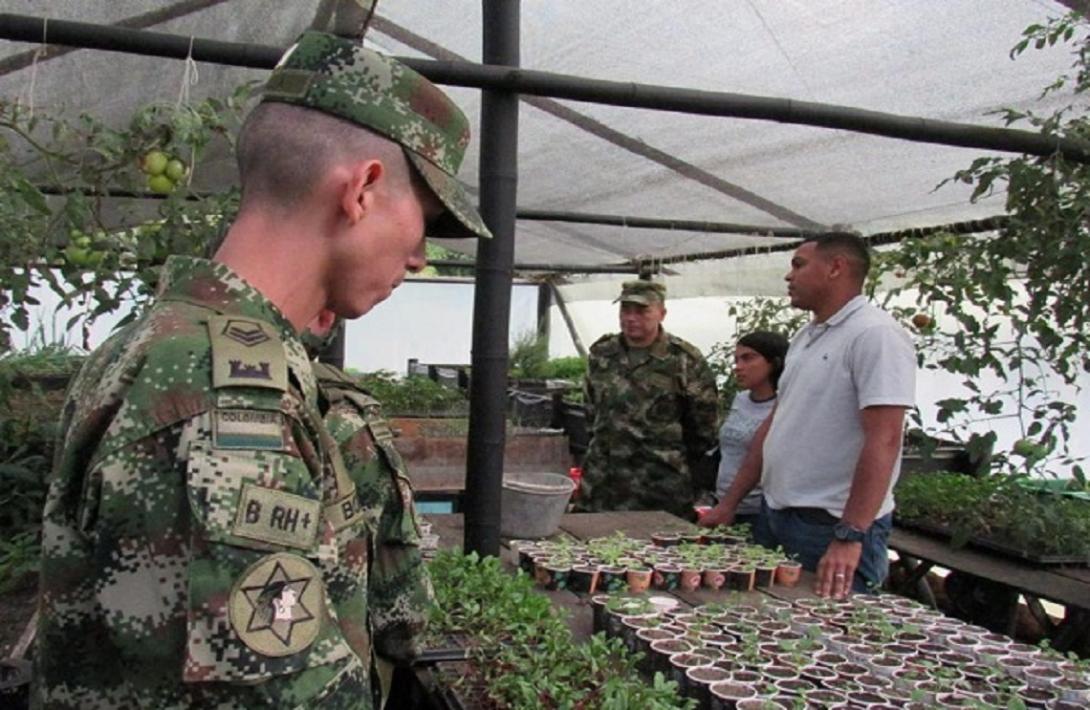This Valley is part of the area of influence of the Los Nevados National Natural Park, and is home to the Quindío wax palm (Ceroxylon quindiuense), a national tree that today is in a state of vulnerable conservation, due to climate change and deforestation.
The municipality of Salento is a gateway to the Cocora Valley, one of the most important missions of the High Mountain Battalion No.5 General Urbano Castellanos Castillo, hand in hand with the municipal and departmental administration, businessmen of the municipality of Salento, Valle del Cocora and owners of surrounding farms have proposed the construction and adaptation of forest nurseries, to begin the process of germination of wax palm seeds.
Since ancient times, this plant occupied the attention of botanists, such as José Celestino Mutis, who noted its properties for the production of wax.
During the XlX and XX centuries its use for the manufacture of candles grew among the most vulnerable classes, who in the same way granted it religious uses.
The wax palm was on the verge of extinction until September 16, 1985, when by mandate of President Belisario Betancur Law 61 was signed, by which the Congress of the Republic adopted the wax palm of the Quindío as a national tree.
“The most difficult thing about working with the wax palm is the fallow up during the germination stage, because it requires specific care related to temperature, water, carbon dioxide, oxygen and mineral salts that are vital for a seed root to germinate. This process can take from nine to fourteen months. It is a process that can easily take up to three years for a wax palm to be planted at its final destination," says Soldier Luis Vallejo Ardila, who along with 90 other military personnel, receives constant instruction of the University of Quindío and the Regional Autonomous Corporation of Quindío.
On the other hand, Jair Contreras, official of the mayor's office of Salento, in charge of the wax palm reforestation Program in the region, recognizes the important operation of the National Army for the construction of nurseries, seed collection and targeted reforestation that to date adds more than 12,000 trees planted and an average of 1,100 seeds germinated per year.
Currently, different higher education institutions have their eyes on the daily operation that is carried out in the forest nurseries of Quindío and the soldiers of the High Mountain Battalion No.5, because in this “maternity care unit”, as the nurseries are jokingly called, the future of our national tree and the Coffee Cultural Landscape is germinating.
Source: Press - National Army





